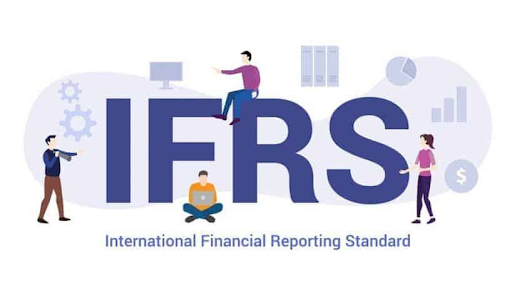With a growing global emphasis on sustainability reporting, IFRS S1 and S2 are becoming increasingly relevant for companies worldwide, including those in the United States. While the USA primarily follows GAAP, companies with international operations or sustainability commitments are integrating IFRS standards into their practices. These frameworks focus on sustainability-related disclosures (S1) and climate-related financial reporting (S2). Below are the key practices to help organizations align with these standards.
Understand the Scope of IFRS S1 and S2 Standards
- IFRS S1: Focuses on sustainability-related risks and opportunities that affect financial performance.
- IFRS S2: Requires specific climate-related financial disclosures, including governance, strategy, risk management, and performance metrics.
Companies must familiarize themselves with these frameworks to ensure that they accurately report how sustainability and climate risks influence their financial statements.
Perform a Gap Analysis
Organizations used to GAAP or voluntary ESG reporting should conduct a gap analysis to identify the following:
- Areas where their current practices fall short of IFRS requirements.
- Overlaps with TCFD reporting, which many US companies already follow.
This analysis ensures that sustainability risks are fully captured and integrated into reports.
Establish Cross-Functional Collaboration
Compliance requires input from various departments, including:
- Finance: Incorporating risks into financial statements.
- ESG teams: Collecting non-financial data, such as emissions.
- Risk management: Assessing climate risks and scenarios.
- Legal and compliance: Aligning with evolving regulations.
A cross-functional approach ensures comprehensive reporting and prevents critical gaps in disclosures.
Integrate Sustainability Risks into Financial Reporting
IFRS S1 emphasizes the need to align sustainability risks with financial outcomes. Companies should:
- Identify material sustainability and climate risks.
- Use scenario analysis to understand potential impacts on cash flow and operations.
- Incorporate these risks into their quarterly and annual financial statements.
This practice enhances transparency and helps investors assess long-term risks and opportunities.
Leverage Technology for Data Management
To streamline compliance, organizations can invest in:
- Sustainability management software for automating data collection.
- Tools for consistent tracking of emissions, energy use, and other metrics.
- Analytics platforms for forecasting climate-related risks.
The technology ensures data accuracy and simplifies reporting across multiple standards.
Align with SEC Climate Disclosure Requirements
The SEC is introducing new climate-related disclosure rules that overlap with IFRS S2. These rules cover:
- Governance and strategy around climate risks.
- Reporting Scope 1, 2, and 3 emissions.
- Setting and monitoring climate-related targets.
Aligning IFRS S2 efforts with SEC rules ensures dual compliance and minimizes redundancy.
Train Employees on Sustainability Reporting
Effective compliance requires employees to understand the following:
- The importance of IFRS standards and their impact on business operations.
- How to collect and report non-financial data accurately.
- Best practices for integrating sustainability metrics into financial reporting.
Continuous training keeps employees updated on evolving reporting standards and ensures data consistency.
Monitor Regulatory and Industry Trends
Although IFRS is not mandatory in the USA, global trends are influencing domestic practices. Companies with international exposure should:
- Stay informed about changes in ESG reporting requirements.
- Monitor European and Asian regulations that affect global operations.
- Engage in collaborative initiatives like TCFD to stay ahead of regulatory shifts.
Being proactive helps companies prepare for new obligations and maintain competitive advantages.
Work with External Auditors and Consultants
External auditors provide independent validation of sustainability reports, helping identify gaps and risks. Consultants can also assist in:
- Optimizing reporting strategies.
- Integrating financial and non-financial data.
- Ensuring compliance with multiple frameworks, including IFRS, GAAP, and SEC guidelines.
External expertise strengthens reporting quality and minimizes compliance risks.
Communicate Progress to Stakeholders
Transparent communication builds trust with investors, customers, and regulators. Companies should:
- Report progress on sustainability initiatives through annual reports.
- Highlight key milestones and targets achieved.
- Provide updates on efforts to mitigate climate risks and align with IFRS standards.
Clear communication aligns with investor expectations and enhances the company’s reputation.
Conclusion
While IFRS S1 and S2 are not mandatory in the USA, they offer significant benefits for companies with international operations or ESG commitments. By integrating sustainability risks into financial reports, leveraging technology for efficient data management, and aligning efforts with SEC proposals, organizations can demonstrate transparency and build trust with stakeholders. Adopting these best practices not only ensures compliance but also creates long-term value and strengthens the company’s position in a competitive, sustainability-focused market.







